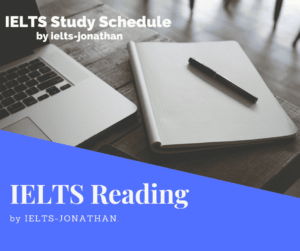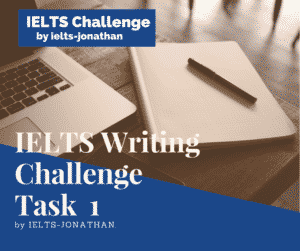IELTS Reading and Why?
If you’re struggling to get the results you want on the IELTS Reading paper, you’re definitely not the only one.
Many people find IELTS Reading to be hard work.
The vocabulary is difficult and there is a wide use of synonyms.
Don’t get discouraged.
Instead, get to work! Smart and consistent preparation can really pay off in IELTS Reading.
Reading Techniques
There are certainly techniques you can follow to improve your speed at locating answers, such as skimming and scanning, but the candidates who do well in the both the Reading and Listening are the ones with the VOCABULARY, who understand synonyms and can make the links between the two.
There many synonyms in English!
The history and development of English means that there are more synonyms available to English speakers than most other languages.
When you understand this fact, and start to look for these synonyms, the IELTS reading test becomes easier and more similar to a comprehension and vocabulary test.
Should I do lots of IELTS tests and locate the synonyms?
To a certain extent it’s always a good idea to perfect the IELTS Test format by practice past papers, however past published papers won’t appear in the real test.
Therefore, learning all the synonyms from past papers is just a false economy.
The words are unlikely to reappear again as there are just too many words in the English language!
So how do I improve my vocabulary?
Any good teacher will tell you that reading is the single most effective way to improve your vocabulary.
However, there are three important points I would make.
Firstly, don’t read IELTS past papers for vocabulary only: Use them as measure on your test performance and your general comprehension.
Secondly, any teacher worth their salt will say you must record and review new words, and make this a habit.
As you read, underline, predict the meaning, return to word, record in a vocabulary book and confirm its meaning. Don’t forget to review the word again.
Thirdly, it’s important to read widely. I encourage people to read what they’re interested in.
Results:
As you acquire more vocabulary, you will find that you able to tackle more challenging topics and when you’re really serious about IELTS, you can read more IELTS topic themed material.
I’m collecting IELTS themed materials here, some of which I use in teaching.
It’s free to view my reading list.
View my Personal IELTS Topic Magazine.
Thanks for reading.
I can correct and give valuable feedback to improve your IELTS writing using my correction service link here.
Finally, you can go over to my Facebook page and join other students who are working towards the test and join my IELTS WRITING TASK 1 group for practice.
All the Best, Jonathan
I’m Jonathan
I’ve taught IELTS and University English in more than a dozen universities and schools around the world.
I’m a parent, traveller and passionate about language teaching and helping students achieve their dreams.
Whilst living in Austria or working in Asia, I run IELTS courses to help students get to where they want to be.
If you are serious about IELTS, connect with me to see how I can help you.

The Best Approach to Task 2 Writing
Paragraphing in Task 2 Writing
Writing – Benefits of a Foreign University Education





Was this helpful? Leave a comment :)